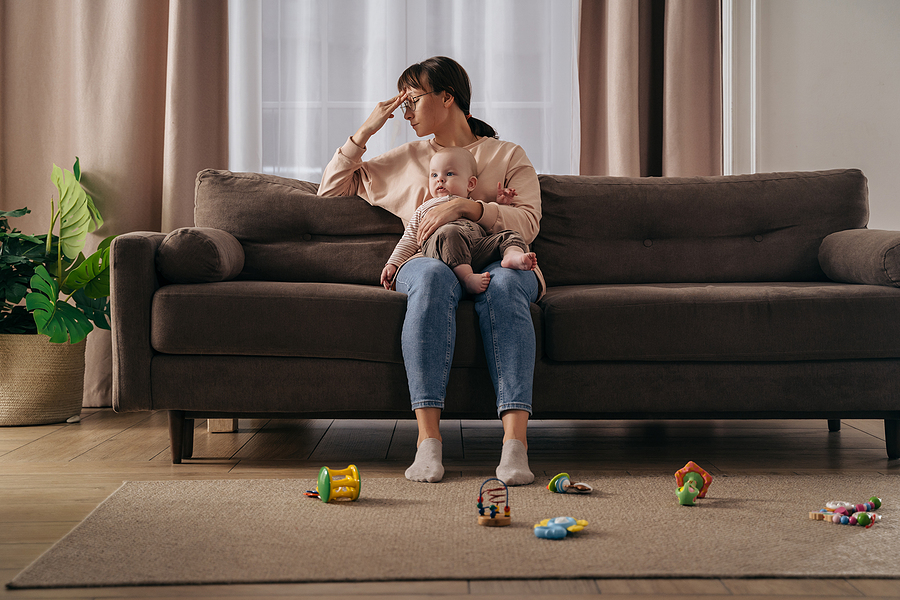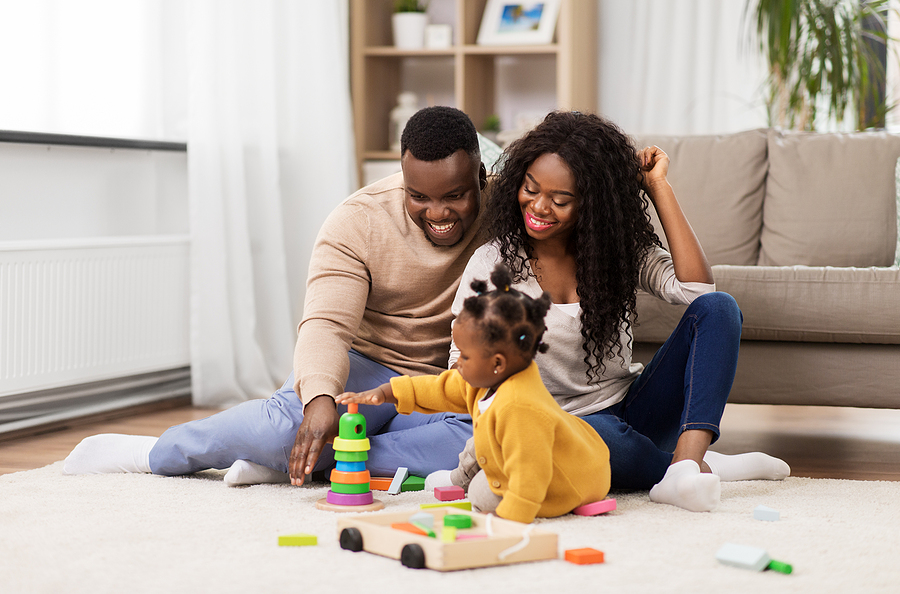Ah, parenthood! The glorious time when our lives revolve around the demands and needs of another human being! Some of us may find ourselves deep into this journey, others may just be starting. I know I am dating myself here, but when I hear “parenthood “, my mind immediately flashes back to the 1989 comedy “Parenthood” with the all-star cast of Steve Martin, Diane Weist, Mary Steenburgen, and a very young Keanu Reeves and Joaquin Phoenix! If this movie didn’t make you think about parenthood and mental health, I don’t know what else will!
But then, the 2010 dramedy “Parenthood” came out. Both of these productions use comedy and relatable material to take a look at just how hard parenting really is and all the ways it impacts our mental health. When we parents are struggling to be healthy, what’s the potential trickle-down effect on the kids? The 1989 flick will always be my favorite, so I will let that be my inspiration for this blog. Let’s unpack this a little and talk about the relationship between parenthood and mental health.
The Pressures of Parenthood
So, hopefully by now you’ve decided you’re going to watch that old 1989 flick! First, let’s talk about the pressure we feel as parents to be the best parents, make our kids happy, and make sure other parents know we are good parents. In the movie Parenthood, Gil and his wife are throwing a birthday party for their oldest son, Kevin. Kevin has been demonstrating deep emotional and developmental challenges while struggling with school and making friends.
Gil, not yet ready to admit that Kevin has these challenges, wants Kevin’s birthday party to “be the best.” However, when the hired party entertainer Cowboy Dan does not show up for the party, Gil concocts an outlandish scheme to be Cowboy Dan himself. Completely dangerous and wholly unrealistic, Gil, for the most part, pulls off his plan. In Gil’s mind, Kevin has had this great birthday party and will therefore overcome his challenges. Yet, we all know it’s just not that easy.
The pressure parents face to make the world okay for their children and prevent them from experiencing emotional pain or other difficulties is immense.
A lot of it comes from an internal drive. Parents are wired to keep their children safe. When children are experiencing distress, oftentimes that “keep the children safe” instinct is activated. While there may not be actual life-threatening danger with the emotional distress our children are feeling, it can surely feel that way internally. So we parents feel this pressure to help our children not feel that emotional distress.
Parents feel pressure to have their children reach developmental milestones, academic and sports success, keeping them healthy and happy; , the list goes on! The pressures of parenthood can become overwhelming and affect our mental health in the form of stress and anxiety.
Parenting is Life
Now let’s revisit the movie to see the relationship between parenthood and mental health on the screen. Helen, Gil’s sister, is a single mom to high school teenagers Julie and puberty-stricken Gary. Julie and Helen have a heated fight over Julie’s boyfriend Todd. Julie makes a really disrespectful comment to Helen, then storms off to her room, locking the door. Helen follows, kicking Julie’s door and yells “your father left to have a party and I stayed behind to raise two kids. I have no life!”
Whether you are new to parenthood, a single parent, a co-parent, or deep in the journey, you may find Helen’s scene quite relatable. Parents often feel as though they have no life. Life becomes caring for every need, whim, and wish of these human beings that demand so much of us.
A quiet morning cup of coffee, watching an evening TV show, having dinner out, and even grocery shopping becomes not so easy. The majority of parents easily accept these changes in exchange for the true joy and happiness their children experience. Additionally, many may have mentally prepared and expected these changes in life.
However, that doesn’t mean it’s not hard. Parents may oftentimes find themselves wishing for some ease, alone time, and the ability to do things they used to enjoy before becoming a parent. When those thoughts enter the mind, the inevitable guilt follows. You love your children and are willing to make sacrifices for them, but you’re also human and can’t help but sometimes want to be able to do the things you simply can’t right now. Juggling parenthood and mental health may feel like a rollercoaster, battling multiple emotions at the same time.
How Does Parenting Impact Mental Health?
According to the CDC, 1 in 14 children has a caregiver/parent with poor mental health. Mothers, fathers, and other caregivers who are in the role of a parent need support for themselves, as that can help them support their children’s mental health.
A child’s health development is dependent on the mental health of their parents or guardians. Part of mentally healthy children includes achieving development and emotional milestones, learning how to cope with problems, and developing healthy coping skills. Mentally healthy children have an increased probability of experiencing a positive quality of life, functioning well at home, in school, and in the community.
Many parents face their own mental health challenges, such as coping with depression and anxiety or experiencing high levels of stress. They may struggle to provide care for their children. Being a parent and caring for children creates many challenges for parents, especially if they do not have the resources and support needed. Parents need to be able to access resources and support so that they can be the healthiest parent possible.
Resources and support can be many different things and vary from parent to parent. Parents need to be able to access affordable childcare and respite care. They need the support of other parents to help process and normalize what they are experiencing and also help engage in problem solving and ideas. They also need to be able to provide food, healthcare, clothing, and a safe home/community. The role of being a parent alone is a very challenging one, and without the needed resources and support, the stress and difficulty of parenting increase significantly, impacting the parent’s mental health further.
Think back to Helen and puberty-stricken Gary in the movie. Helen is trying to raise two children as a single parent, one who is in need of a male role model in his life. As Gary is facing the challenges of puberty, he has questions he needs to ask someone other than his mother, Helen. Luckily, as you will see in this movie, Helen has a lot of support from her family and even Julie’s controversial boyfriend Todd. Helen was able to recognize that someone in their lives could provide Gary with the support he needed in a way she couldn’t. Parents need support in so many different ways, and often unexpected ways.

Managing Parenthood and Mental Health
Asking for help can feel hard. As parents, it’s very easy to feel judged and feel pressured to handle it all ourselves. It’s so important to remember you don’t have to be perfect. All parents have hard times. Taking care of your mental health is the first step to becoming a better parent and enjoying your role.
Here are some tips to effectively manage parenthood and mental health:
Create A Routine
Having regular mealtimes and bedtimes can help life feel a little less chaotic and the children more secure. While it’s not always going to be possible to stick to the routine, trying to have a routine as the “norm” can help everyone feel grounded. Having the schedule/routine written down can also be very helpful. It can help manage busy schedules and allow you to feel like you are never “forgetting something.” Staying organized also comes in handy if any family or friends are going to be helping out with child care.
Have a Support Network
Find friends, family, and other parent groups that you can rely on for support and advice. Oftentimes having other parents to talk to when you are feeling overwhelmed and stressed can be very beneficial. Most parents will have experienced the same feeling or may be currently feeling that way as well. Other parents help normalize our experiences, which helps us feel less isolated and alone. These support networks might also help you access resources and other needed support!
Take Care of Yourself
This one always feels tough. When is there time?! Can you get in some exercise by walking with the kid(s) on bikes or in a stroller? Can you listen to an audiobook while driving? Take that nice hot shower or bath after the kids have gone to sleep? Maybe a friend, family member, or sitter can watch the kids while you go out alone for an hour? Can instituting a schedule and routine help everyone get to bed earlier, giving you a chance for some alone time or much-needed sleep?
Self-care as a parent needs creativity and flexibility. It might not look like we imagine it should or necessarily want it to be. We might need to start out with small things we can do for ourselves to give us a little break, breathing room, and reset. Simple things we can do for ourselves to start and slowly build upon as the children get older are key.
Seek Professional Help
Sometimes your mental health may be impacted enough that you will need help from a mental health professional. This is perfectly normal. Parenting is difficult and so is life. Just because you become a parent doesn’t mean all the other stress of life goes away! You’ve got to juggle it all! It’s okay to seek help from a mental health professional. And if you are struggling to find child care so you can meet with a mental health professional, talk to potential therapists about it. They may be able to help you problem-solve how to get the care you need.

Bright Harbor Healthcare is Here For You
If you are a parent struggling with managing your mental health, Bright Harbor Healthcare is here to help. Our professionals offer outpatient services to help you navigate parenting while struggling with depression, addiction, or anxiety. Additionally, we offer child and parent enrichment services. Whether you’re looking for individual, group, or family therapy for your children, we are trained to provide the counseling and support services you need. Get started with Bright Harbor Healthcare today and reach out now.

